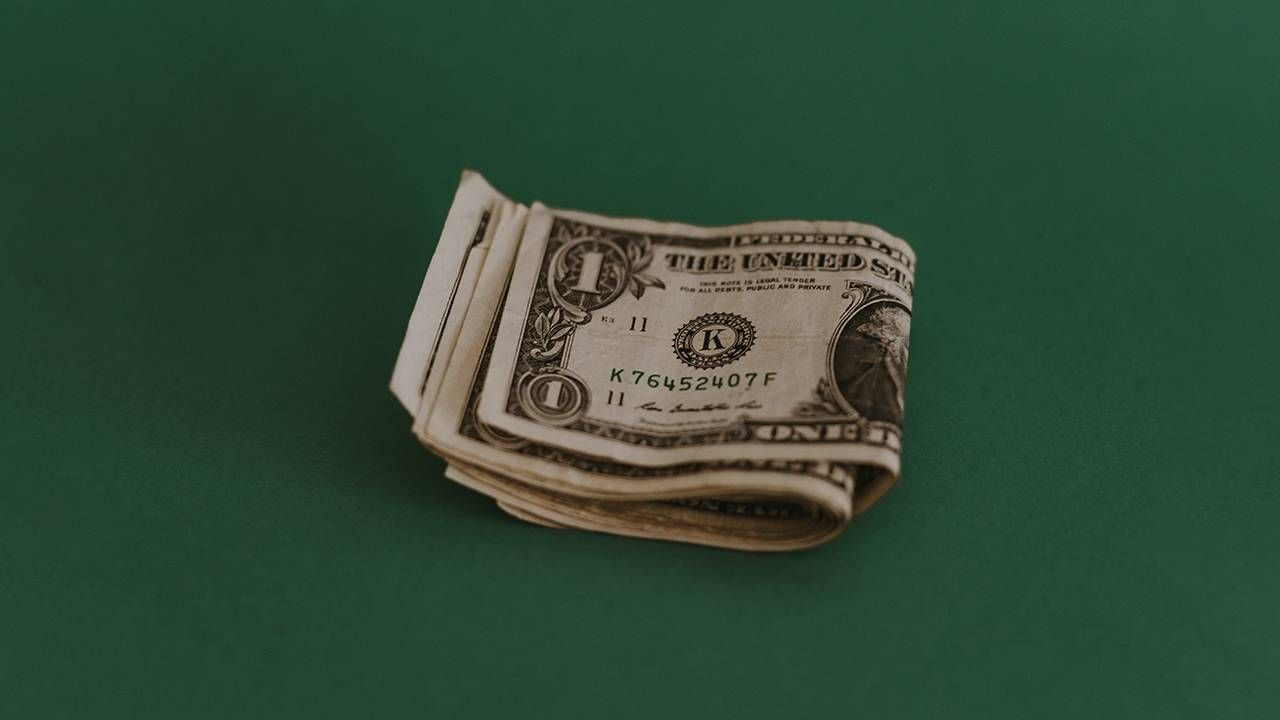7 Ways to Cope with Financial Anxiety
For some, fear of running out of money can be worse than fearing death. Here are suggestions on how to alleviate financial worries.
Financial anxiety can be a debilitating money monster that affects people of all income levels. It haunts someone struggling to make rent as well as someone struggling to make the right investments — and every financial situation in between.

So, it's not surprising in today's volatile economy that financial anxiety is rampant. Researchers at the Global Financial Literacy Excellence Center at George Washington University and the FINRA Investor Education Foundation used financial studies and focus groups to find that 60% of participants feel anxious when thinking about their finances and 50% say they're stressed about them.
Major financial triggers included:
- Lack of assets
- Insufficient income
- High debt
- Money management challenges
- Low financial literacy
Financial anxiety, like its non-specific cousin general anxiety, share many of the same criteria such as excess worry — in this case, over money, bills, assets, retirement, income or debt among others.
"I believe the fear of running out of money when people are older and retired is the main source of financial anxiety."
And with it come symptoms such as irritability, ruminating thoughts about money, nervous feelings about not having enough, not doing the right thing with money, losing it or spending too much of it.
And when your mind can't rest from constant financial turmoil, it can result in the inability to sleep, relax, calm down, concentrate or be productive because money worries take up much of your brain space.
So, what are the signs and symptoms of financial anxiety, where does it come from and is there a way to ease the financial uneasiness?
Where Does Financial Anxiety Come From?
Many people who struggle with financial anxiety in adulthood have also experienced financial insecurity in childhood.
"Financial insecurity in our formative years can contribute to a scarcity mindset around money," says Rebecca Phillips, a therapist and owner of Mend Modern Therapy in Frisco, Texas. "A scarcity mindset can make us feel like no matter how much we have, it's never enough."
We may subconsciously fear that our basic needs could go unmet, we won't have enough money for retirement or to pay bills, or even that we could lose our job, home, or all our savings.
For those who have suffered financial insecurity in childhood, healing could require deeper therapeutic work because no amount of money may help relieve these types of embedded childhood anxieties.
For others, life events like job loss, financial crises, life changes like having a child head to college or someone in the family retiring can trigger anxiety. And it needn't even be a major life event but something like taking on new debt, downsizing, or making a money misstep.
"I believe the fear of running out of money when people are older and retired is the main source of financial anxiety," says Doug Carey, CFA, owner of WealthTrace, a retirement and financial planning software company.
"It is still true that more people fear running out of money in retirement than they fear death," he adds.
Carey says millions of people lose sleep over visions of being in their 70s or 80s and having to go back to work, likely at a job that is lower paying than when they were in their prime working years. They fear not being able to enjoy their retirement or afford travel, dining out, or other luxuries they expected to embark on during their retirement years.
And finally, some people may develop financial anxiety as a learned response to internalized messages from their parents, caregivers, or communities that perpetuate fear, anxiety, and a "never enough" mindset.
In other words, if your parents were always on edge about not having enough to cover bills or lacking retirement savings, or the stock market is up and down the way it has been of late and you're listening to panicked chatter, you may internalize those messages, which ramp up anxiety.
How Does Financial Anxiety Manifest?
"One sure symptom is losing sleep at night thinking about money," says Carey. Likewise, if you wake up frequently with thoughts of bills, running out of money, or losing money in the markets, you may be experiencing financial anxiety.
"If you constantly wonder if you can ever retire, this too is financial anxiety," he says.
Symptoms of financial anxiety include a range of chronic stress, muscle tension, obsessiveness around spending and saving, insomnia, perfectionism, over-functioning, work addiction and relationship problems.
"These symptoms are a recipe for burnout, which can occur when financially anxious individuals feel a constant urge to be productive at the expense of leisure time," says Phillips.
And worst of all, Phillips says, not only does financial anxiety take a toll on our mental health, but the consequences of unmanaged anxiety can affect our physical health.
"One sure symptom is losing sleep at night thinking about money."
"Chronic stress and anxiety can lead to significant health problems such as a weakening of the immune system, digestive issues, high blood pressure and heart disease," she says.
An Ellevest Financial Wellness survey found that women are hit especially hard. Half the women in the survey say financial stress takes a toll on both their mental and emotional health and 40% believe it's damaged their physical health.
Recognizing Money Fears
Phillips recommends starting by identifying your thoughts, feelings and behaviors around financial anxiety. Ask yourself:
- Is the anxiety caused by former financial insecurity, experiencing job loss, an economic crisis, or scarcity messages you were raised with?
- Where do the feelings pop up in your body when you think about money worries? A tight neck? Tummy troubles, chest discomfort? “Sometimes we notice the physical feelings of anxiety before we identify the contributing thoughts,” Phillips says.
- What behaviors result when you feel anxious about money? Do you binge eat, work too much, fight with your spouse?
7 Ways to Cope with Financial Anxiety
1. Engage in regular self-care and leisure activities. Taking care of yourself over the long haul is important. "Exercise, vacations and time with loved ones are all very necessary to good mental health and help to alleviate anxiety," Phillips says.
2. Seek therapy if needed. Since earning more money isn't always sufficient to manage financial anxiety, therapeutic modalities like Cognitive Behavioral Therapy (CBT) can help you address the core issues of your long-term anxiety. Working with a therapist can help get to the root of your worries.
3. Create a financial plan. "If people don't know where they stand today financially and where they are projected to be in retirement, then it's no wonder they have anxiety about their finances," says Carey. Many people are likely in better shape than they realize and are worrying needlessly. "I have worked with many clients who thought they had to work until age 75 when that wasn't actually the case," he says.
4. Work with a financial planner. Even if you aren't in great financial shape, a financial planner, coach, or advisor can help you figure out what you need to do to be able to retire — without anxiety.
5. Set aside emergency savings. To buffer against future financial shocks, develop a proper emergency fund. If you're prepared, there's less to be anxious over.
6. Check out financial help. If you're working, investigate your employer's financial wellness programs and resources that can get you on track, or talk with an advisor to brush up on financial literacy, and help you cope with the stress.
7. Change your relationship with money. Or at the very least change your thoughts about money. Once you ditch thoughts like you'll never have enough, you open yourself up to the possibility of having plenty.


